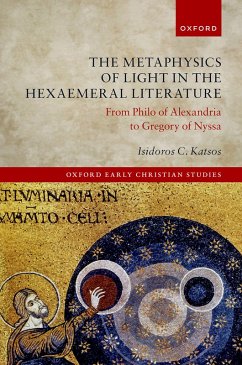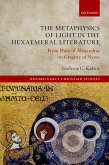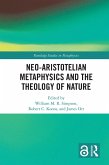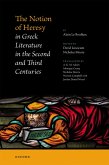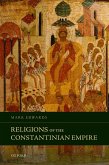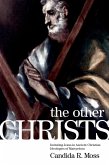This volume critically re-evaluates the received interpretation of the nature of light in the ancient sources. Isidoros C. Katsos contests the prevalent view in the history of optics according to which pre-modernity theorized light as subordinate to sight ('oculocentrism') by examining in depth the contrary textual evidence found in early Christian texts. It shows that, from Philo of Alexandria and Origen to Basil of Caesarea and Gregory of Nyssa, the Jewish-Christian commentary tradition on the hexaemeral literature (the biblical creation narrative) reflected deeply on the nature and physicality of light for the purposes of understanding the structure and purpose of material creation. Contemplation of nature allowed early Christian thinkers to conceptualize light as the explanatory principle of vision rather than subordinated to it. Contrary to the prevalent view, the hexaemeral literature necessitates a 'luminocentric' interpretation of the theory of light of Plato's Timaeus in its reception history in the context of late antique cosmology. Hexaemeral luminocentrism invites the reader of Scripture to grasp not only the sensible properties of light, but also their causal principle as the first manifestation of the divine Logos in creation. The hexaemeral metaphysics thus provides the missing ground of meaning of the early Christian language of light.
Dieser Download kann aus rechtlichen Gründen nur mit Rechnungsadresse in A, B, BG, CY, CZ, D, DK, EW, E, FIN, F, GR, HR, H, IRL, I, LT, L, LR, M, NL, PL, P, R, S, SLO, SK ausgeliefert werden.

